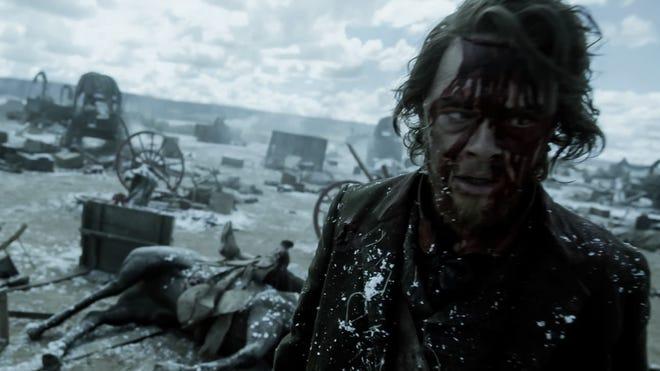American Primeval, a Netflix limited series, has enjoyed a remarkable resurgence to the top spot on the platform’s US Top 10 list, marking its fourth reign this year. This success story underscores the show’s consistent popularity since its January 9 debut, holding a near-constant presence at the summit of Netflix’s viewership charts. However, its dominance is primarily confined to the US market, where it has consistently occupied either the #1 or #2 positions. Internationally, American Primeval faces stiffer competition, notably from shows like XO Kitty, which currently reigns supreme in global rankings. This disparity highlights the potentially limiting effect of the show’s title, with its “American” focus perhaps hindering its international appeal. This latest triumph, however, is predicted to be short-lived, with the imminent arrival of The Night Agent season 2 poised to dethrone American Primeval.
The Night Agent, a proven powerhouse on Netflix, boasts season 1 as the seventh most popular English-language show in the platform’s history. This impressive track record virtually guarantees season 2’s immediate ascension to the #1 spot, with the potential to enjoy an even longer reign than American Primeval. The anticipation surrounding The Night Agent’s return is further fueled by Netflix’s preemptive greenlighting of season 3 back in December, a clear demonstration of the streaming giant’s confidence in the show’s continued success. This strategic move highlights Netflix’s reliance on data-driven decision-making, leveraging the anticipated high viewership of season 2 to justify further investment in the franchise.
While American Primeval’s narrative concluded with its miniseries format, the creators have expressed interest in exploring a prequel centered on Taylor Kitsch’s character, Isaac. Given the show’s exceptional performance, this prequel concept appears highly likely to materialize, assuming the creative team can reunite. However, navigating the complexities of a prequel development might prove more intricate than simply announcing a direct sequel season. Unlike a straightforward continuation, a prequel requires careful consideration of narrative continuity, character arcs, and the overall expansion of the existing storyline. This necessitates a more strategic approach compared to simply picking up where a previous season left off.
The success of American Primeval, despite receiving lukewarm critical reviews, underscores the growing disconnect between critical acclaim and audience reception in the streaming era. Netflix’s viewership metrics demonstrate that critical consensus does not necessarily dictate a show’s popularity, particularly in cases where reviews are generally positive, if not overwhelmingly enthusiastic. This phenomenon is further exemplified by The Night Agent season 1, which garnered decent but not outstanding reviews yet achieved substantial viewership success. This trend suggests that while scathing reviews can negatively impact a show’s performance, moderate critical reception does not necessarily hinder its ability to connect with a broad audience. In the case of American Primeval, the positive audience response ultimately outweighs the more measured critical assessment, solidifying its position as a bonafide hit.
American Primeval’s two-week reign atop the Netflix charts, while temporary, reinforces its status as a significant success for the platform. This performance provides a strong foundation for the potential development of a prequel, further exploring the rich narrative world established in the miniseries. While the prequel remains in the conceptual stage, requiring time for development and production, American Primeval’s proven appeal makes it a compelling prospect for Netflix. The platform’s willingness to invest in a prequel demonstrates its commitment to capitalizing on successful intellectual property and expanding its offerings to cater to audience demand.
The streaming landscape, characterized by fierce competition and evolving viewer habits, presents both challenges and opportunities for content creators. American Primeval’s journey from a limited series to a potential franchise exemplifies the dynamism of this environment. Its ability to capture audience attention, despite mixed critical reviews, demonstrates the power of compelling storytelling and engaging characters. As Netflix continues to navigate the complexities of the streaming market, American Primeval’s success serves as a valuable case study in understanding the factors that contribute to viewership engagement and the potential for long-term franchise development. The interplay between critical reception, audience response, and platform strategy will continue to shape the future of streaming content, highlighting the need for a nuanced understanding of the evolving dynamics of this rapidly changing media landscape.


